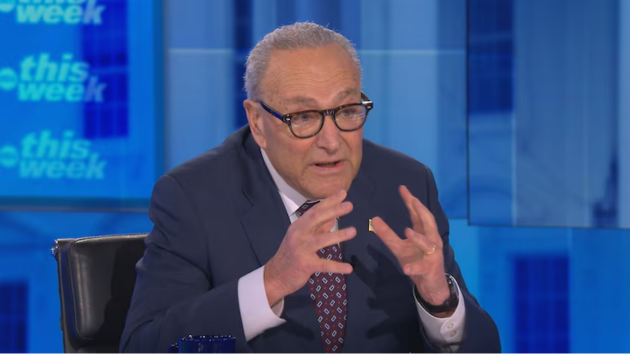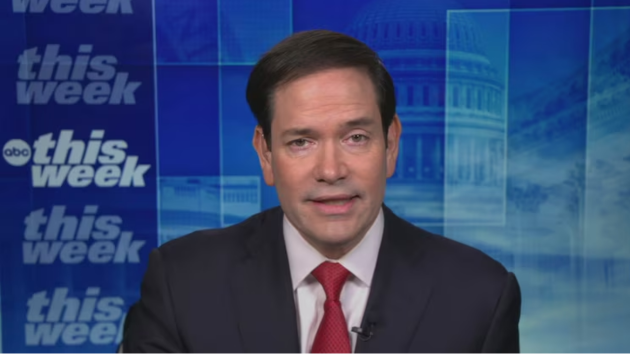Prosecutors say gag order is needed to keep Trump from inviting ‘violent act’ on law enforcement
Written by ABC Audio All Rights Reserved on June 25, 2024

(NEW YORK) — Prosecutors on Monday told the judge overseeing Donald Trump’s federal classified documents case that a limited gag order was necessary to prevent the former president from inviting a “violent act” on the law enforcement agents involved in the case.
As assistant special counsel David Harbach attempted to demonstrate that Trump was aware of the “predictable response of some of his supporters” when he made false statements about FBI’s August 2022 search of Mar-a-Lago — including a campaign statement that President Joe Biden was “locked & loaded ready to take me out & put my family in danger” — Judge Aileen Cannon challenged the prosecutor to produce evidence and justify the constitutionality of the proposed gag order.
“The most important thing is it talks about an event that is central to this case in utterly misleading terms,” Harbach argued. “The government is at a loss to conceive any possible reason Mr. Trump would say something so false … and inviting of retributive violence.”
“Where on the attachments do you see a call for violence?” Cannon responded after criticizing prosecutors for not producing ample evidence of a pattern of conduct from Trump’s other criminal and civil cases.
Trump pleaded not guilty last year to 40 criminal counts related to his handling of classified materials after leaving the White House, after prosecutors said he repeatedly refused to return hundreds of documents containing classified information and took steps to thwart the government’s efforts to get the documents back. Trump has denied all charges and denounced the probe as a political witch hunt.
Cannon pressed Harbarch on the argument that a modification of Trump’s release conditions — rather than a standalone gag order like in the former president’s federal election interference case — would avoid issues related to the First Amendment.
“Do conditions of release still need to comport with the Constitution?” Cannon asked. “The First Amendment is in the Constitution.”
Cannon also expressed skepticism about the impact of Trump’s statements on the law enforcement officers, highlighting that any public filings included redactions for the names and identifying information of law enforcement agents. Harbach responded by arguing that some agents were previously doxed, and described Trump’s recent statements as “beyond irresponsible.”
Harbach argued that there is “ample danger between now and trial … that some sort of violent act will occur” because of Trump’s conduct, and said that Cannon needed to impose the restrictions on Trump’s speech to protect the integrity of the proceedings. When Cannon suggested waiting until trial to impose any restrictions on speech, Harbach argued immediate action was necessary.
“That die has already been cast … by defendant’s conduct,” Harbach said.
The first hour of the hearing grew contentious at times, as Cannon pushed Harbach for evidence and details.
“I don’t appreciate your tone,” Cannon told Harbach at one point. “I expect decorum in this courtroom at all times.”
“I didn’t mean to be unprofessional. I apologize for that,” Harbach later said
The request for a gag order by the special counsel follows a month of escalating rhetoric from Trump about federal agents’ use-of-force policy during their August 2022 search of Trump’s Mar-a-Lago estate for classified documents.
In a filing last month, Smith argued that Trump’s statements that law enforcement officers were “complicit in a plot to assassinate him” were intentionally false and misleading, and “put a target on the backs of the FBI agents.”
Trump’s defense attorneys responded to the request by claiming that prosecutors have failed to demonstrate that Trump’s statements resulted in any material threats or harassment against law enforcement.
Echoing the former president’s defense against the limited gag order in his New York criminal hush money case, Trump’s lawyers wrote that the proposed gag order — which they describe as a “shocking display of overreach and disregard for the Constitution” — amounts to political interference by limiting Trump’s statements ahead of this week’s presidential debate and the Republican National Convention in July.
“[T]he motion is a naked effort to impose totalitarian censorship of core political speech, under threat of incarceration, in a clear attempt to silence President Trump’s arguments to the American people about the outrageous nature of this investigation and prosecution,” defense lawyers said in a June filing.
The gag order hearing, being conducted by U.S. District Judge Aileen Cannon, follows a continuation this morning of Friday’s hearing in which defense attorneys are seeking to have the documents case dismissed on the grounds that Smith was unlawfully appointed as special counsel.
‘False and extremely dangerous’
Trump’s recent public statements related to the Mar-a-Lago search, during which agents found more than 100 documents with classified markings, have emphasized the use-of-force policy in place during the raid, which Trump has repeatedly associated with “Biden’s DOJ.”
Prosecutors argue that law enforcement employed the Department of Justice’s standard use-of-force policy, which allows the use of force “when the officer has a reasonable belief that the subject of such force poses an imminent danger of death or serious physical injury to the officer or to another person.”
In filings, Smith also emphasized that the search was scheduled in the off-season when Trump and his family were not present at Mar-a-Lago and that it was conducted with coordination with Secret Service and Mar-a-Lago staff — and that Trump’s lawyer was notified before the search was executed.
In a rare public rebuke, the FBI issued a statement last month to confirm that law enforcement used standard protocols related to use of deadly force during the raid, adding that, “No one ordered additional steps to be taken and there was no departure from the norm in this matter.”
Attorney General Merrick Garland also described accusations that the DOJ authorized Trump’s assassination as “false and extremely dangerous” and added that the same policy was in place during the search of President Biden’s home during the investigation into his retention of classified documents.
Threats against law enforcement
Prosecutors have emphasized that the proposed gag order against Trump would be narrowly limited — solely prohibiting Trump from falsely speaking about “FBI agents intending to murder him and his family” — in order to protect the safety of law enforcement officials.
To illustrate the threat against law enforcement officials, prosecutors claimed that Trump’s rhetoric encouraged a supporter to make threats to an FBI agent associated with the Hunter Biden case, including threatening that supporters would “hunt you down” and “slaughter you” if Trump does not win the 2024 election.
Prosecutors also argued that a Trump supporter attacked an FBI field office in Cincinnati with an AR-15 and a nail gun in August 2022 after the raid on Mar-a-Lago — an attack which prosecutors say was partially inflamed by Trump’s comments on social media after the raid.
Defense lawyers wrote that Trump has engaged in his “constitutionally protected campaign speech” and that prosecutors have failed to prove that Trump’s statements have directly resulted in threats or harassment.
In addition to highlighting two examples of threats or violence, prosecutors broadly argued that Trump’s inflammatory language about the raid has created a “combustible atmosphere” that poses an immediate risk to law enforcement.
“No court would tolerate another defendant deliberately creating such immediate risks to the safety of law enforcement, and this Court should not wait for a tragic event before taking action in this case,” prosecutors said in a filing last week.
Trump’s other gag orders
Trump has generally been unsuccessful in challenging the gag orders imposed in his other criminal and civil cases, occasionally securing stays of the orders but failing to overturn the orders as unconstitutional.
New York’s highest court declined to take up Trump’s challenge to the gag order in Trump’s civil fraud case, which prohibited Trump from making comments about judicial staff.
Last week, the same court declined to immediately consider Trump’s challenge to the gag order in his New York hush money case — which prohibits Trump from making statements about jurors, witnesses, and others involved in the case — after determining that “no substantial constitutional question is directly involved” in Trump’s challenge. A mid-level appeals court last month found that the gag order “properly weighed petitioner’s First Amendment Rights against the court’s historical commitment to ensuring the fair administration of justice.”
Trump also unsuccessfully challenged the gag order in his federal election interference case that prohibited from making statements about prosecutors other than Smith, witnesses, and courthouse staff.
“Given the record in this case, the court had a duty to act proactively to prevent the creation of an atmosphere of fear or intimidation aimed at preventing trial participants and staff from performing their functions within the trial process,” a panel of Court of Appeals judges in Washington, D.C., wrote in an order last year upholding the gag order.
Copyright © 2024, ABC Audio. All rights reserved.

 KVSP
KVSP 





